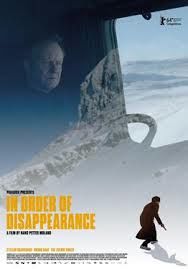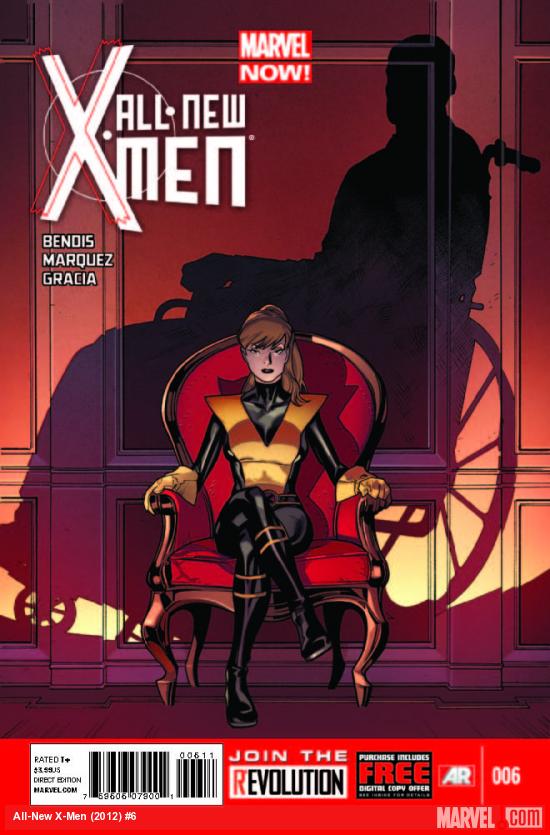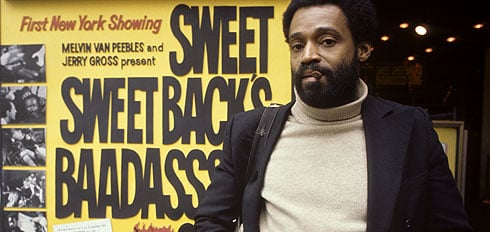 In Order of Disappearance
In Order of Disappearance
Written by Kim Fupz Aakeson
Directed by Hans Petter Moland
Norway, 2014
In the opening shot of the Norwegian crime thriller In Order of Disappearance, a plow thunders down a Scandinavian country road, clearing the path with massive snow blowers. It might be tempting to say that the film’s hero, Nils Dickman (Stellan Skarsgard) is like the plow, pushing anything and everything out of his way in his desire for revenge. That’s the way Hollywood romanticizes its heroes, even the ones that are darker and more unlikeable. But in Norway, they do things a bit differently, and this film is all the better for it.
Dickman is the driver of that plow from the opening scene, and his tireless work clearing the local roads earns him a Citizen of the Year award soon afterward. On that same night, Nils’ son Ingvar is found dead of a supposed heroin overdose. When Nils learns that the death may in fact have been murder, his hunger for revenge will cause him to run afoul of a pair of powerful local cartels.
An interesting thing happens right after the scene in which the son dies. A black title card appears on screen, carrying his name and a cross. It’s not entirely clear what is meant by this until it’s seen for a second character, and then a third. Soon it becomes clear that the death of every character in the film will be marked by the filmmakers … in order of disappearance, you might say. Not all of these deaths are caused directly by Nils Dickman, but they’re all adjacent to him; this film will provoke interesting discussion as to how many of those deaths could have been prevented if he had not gone on the warpath, and how many were just bad luck.
 Now, let’s be clear: despite the high body count, this is not “Stellan Skarsgard does Taken.” There are no particular sets of skills in play: director Hans Petter Moland lingers over his star’s ample paunch, and one torture goes on for so long that Nils, gasping for breath, has to take a break. Moreover, there really isn’t much action in the film. Every time a character would like to have some kind of badass action opportunity, Moland works hard to undermine it, such as with the introduction of a lean, somber Asian hitman whose story does not go as expected.
Now, let’s be clear: despite the high body count, this is not “Stellan Skarsgard does Taken.” There are no particular sets of skills in play: director Hans Petter Moland lingers over his star’s ample paunch, and one torture goes on for so long that Nils, gasping for breath, has to take a break. Moreover, there really isn’t much action in the film. Every time a character would like to have some kind of badass action opportunity, Moland works hard to undermine it, such as with the introduction of a lean, somber Asian hitman whose story does not go as expected.
In fact, nothing goes as expected. Both for Nils and for the targets of his vengeance, their best-laid plans go wildly, uncontrollably, hilariously wrong. Moland mines the unpredictability of revenge for some wickedly black humor, drawing a level of nihilistic laughter that makes the Coen brothers’ crime films look like lighthearted romps. The audience should know what to expect when the most cheerful jokes in a film are puns on the protagonist’s last name – yes, “Dickman” draws the same entendres in Swedish as in English.
This is a handsome-looking film, mainly in how it keeps the audience at a remove from every character, even those that we might be tempted to like. Moland, like many Scandanavian directors, understands perfectly how to mesh the region’s frozen expanses with a film’s bleak tone. Citizen of the Year or not, you don’t live in the conditions that Nils Dickman does and develop a warm heart.
— Mark Young



